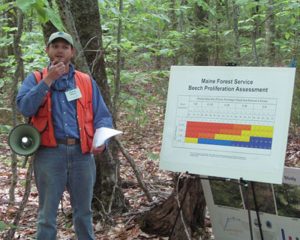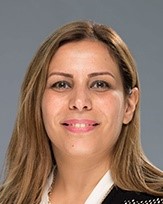Doctor of Philosophy in Forest Resources
 The Ph.D. in Forest Resources is the highest academic degree offered requiring students with excellent academic records and experience. Students are expected to design and complete a dissertation on original research that can be published as multiple peer-reviewed journal articles.
The Ph.D. in Forest Resources is the highest academic degree offered requiring students with excellent academic records and experience. Students are expected to design and complete a dissertation on original research that can be published as multiple peer-reviewed journal articles.
Admissions:
Applications and admission is handled by the Graduate School.
Recommendations for admission are made by the School of Forest Resources based on academic records, quality of statement of purpose (SOP), experience, and recommendations.
The School of Forest Resources receives and evaluates graduate student applications on a rolling basis. Students can be admitted to our graduate program either in the fall or spring semester each year. International students are recommended to consider the required time needed for visa application when applying to our graduate programs.
Applicants are highly encouraged to contact the SFR faculty with research interest matching their intended field of study before submitting their applications. Application materials include the graduate school form, transcripts, 3 letters of recommendation and English scores (for international applicants only). Please see here for the Graduate School English score requirements.
Program Requirements:
Form an Advisory Committee: The Ph.D. Advisory Committee is made up of at least five graduate faculty members, at least 2 from the School of Forest Resources and one that must be outside the student’s discipline.
Course Requirements: Course requirements for the Ph.D. degree are established by the Advisory Committee. This requirement may be adjusted based on approval of transfer credits (note: in general, no more than 9 hours of transfer credits from a Master’s degree will be accepted). Ph.D. students must have at least six (6) hours of thesis credit, but there is no upper limit on the number of hours required to complete the thesis. SFR 521: Research Methods in Forest Resources (3 credits) is required. for all students and satisfies the responsible conduct of research (RCR) requirement of the Graduate School. In addition, 2 credits of graduate seminar course (taken in two separate semesters) are required.
Ph.D. Comprehensive Examination: The comprehensive examination for admission of Ph.D. students to candidacy will consist of a written examination(s), followed by an oral examination no later than 60 days after successful completion of the written examination(s). These examinations are comprehensive in nature, with the subjects scope, and content to be determined by the Advisory Committee. This set of exams (written and oral) will normally occur after completion of the bulk of the student’s course work.
Dissertation: The student must complete an original research project and write a dissertation. The Advisory Committee must approve the dissertation topics and study plan before research can begin.
Final Examination: A public presentation of the dissertation results is made followed by an oral examination by The Final Examination Committee. The Exam Committee is composed of at least 5 individuals (usually the Advisory Committee plus an external examiner, if appropriate).
Fees and Expenses:
Tuition varies with residency. Financial aid may be available.
Assistantships:
All applications may be considered for the several teaching and research assistantships available each year. Check for currently available assistantships.
For more info or questions, contact:
Parinaz Rahimzadeh-Bajgiran, Graduate Coordinator
215 Nutting Hall
Nutting Hall
University of Maine
Orono, ME 04469-5755
email: parinaz.rahimzadeh@maine.edu

